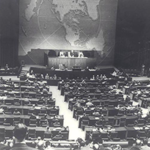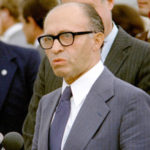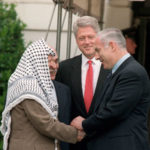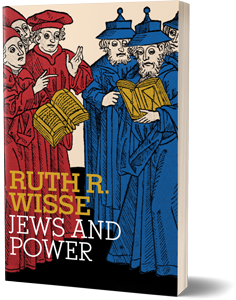Join Dr. Daniel Polisar, one of Israel’s leading experts on Zionist history, as he takes us on a journey through the heroic leaders, defining ideas, and political history behind the founding of the Jewish state in 13 captivating 30-minute lectures.
Lectures Streaming Wednesdays at 8:00 PM ET on:
May 26 | June 2 | June 9 | June 16 | June 23 | June 30
July 7 | July 14 | July 21 | July 28 | Aug 4 | Aug 11 | Aug 18
The establishment of the State of Israel is one of the most remarkable achievements of the modern era. Never before had a people dispersed throughout the world, deprived of sovereignty for millennia, at times targeted and slaughtered, returned to its ancient homeland to build a thriving country. Who were the great leaders and thinkers that helped craft a modern Jewish nationalism? What moved them to build a new Jewish state for a people so long deprived of self-determination? How did the political situation of the Jewish people—in Russia, Europe, and the Middle East—change and evolve, and how did the Zionist founders and the new Israeli patriots interact with world leaders and confront their enemies, both on the battlefield and in the political arena?
Weaving together the political, cultural, and religious history of the Zionist movement, Dr. Polisar will illuminate the spirit of modern Jewish nationalism and the unfolding (and miraculous) meaning of modern Israel.
Registrants will be emailed a link to each live lecture on the day of each session, with an additional reminder sent shortly before the stream begins.
Every lecture will also be recorded and sent to registrants within 36 hours of each lecture’s conclusion.
This series is generously supported in part by Gary and Lee Rosenthal.
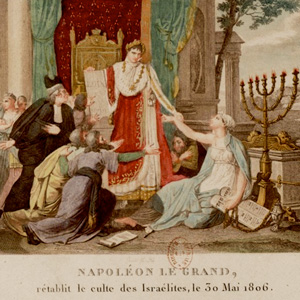
1. The Impossible Dream of Founding a Jewish State in Modern Times
Wednesday, May 26, 2021 | 8:00 PM ET
In 1807, Napoleon Bonaparte brought about the convening of a Sanhedrin—the supreme decision-making body of the Jewish people—which declared that the Jews possessed a shared religion but were no longer a nation with political aspirations. Coming after nearly two millennia of Exile, this proclamation seemed to signal the end of the age-old dream of re-establishing a Jewish state. Yet a century and a half later Israel was established as the national state of the Jewish people and today it is a robust democracy, an economic success story, a regional powerhouse, and a leading actor on the world stage. In this opening session, we will lay out the main puzzle this course will address: How did the Jews overcome seemingly impossible odds to establish a state whose accomplishments are routinely described as miraculous by even the most secular of people?
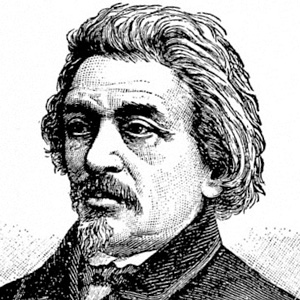
2. The Beginnings of Modern Jewish Nationalism, 1807-1895
Wednesday, June 2, 2021 | 8:00 PM ET
Not long after the Napoleon-inspired Sanhedrin had declared the end of Jewish nationalism, small but growing numbers of Jews around the world embarked on three separate efforts that laid the foundation for creating a modern state in the ancient homeland: reviving Hebrew as a language for addressing contemporary issues and for daily living; developing the case for the idea of re-establishing a Jewish state in the land of Israel; and bringing about the settling of the land by Jewish pioneers. This session describes these activities and the figures who led them from the early 19th century until the middle of its final decade.
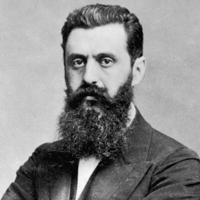
3. Theodor Herzl and Launching the Zionist Movement, 1895-1904
Wednesday, June 9, 2021 | 8:00 PM ET
Though crucial elements of a nationalist revival were in place before Theodor Herzl decided in 1895 to devote his life to creating a Jewish state, there is little doubt that without this singular figure such a state would not have been established. This session focuses on how Herzl founded the Zionist movement and served simultaneously as the man of ideas who developed the vision and plans for a Jewish state, the institution builder who created an international movement capable of acting effectively during and after his lifetime, and the chief diplomat who paved the way for the decision of the world’s leading powers, a decade and a half after his death, to establish a Jewish home in Palestine.
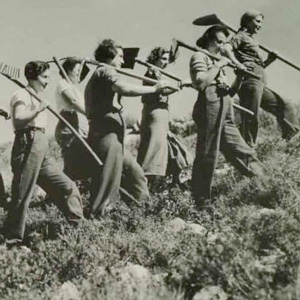
4. The Jewish Homeland in the Making, 1904-1918
Wednesday, June 16, 2021 | 8:00 PM ET
Following Herzl’s untimely death in 1904, efforts to settle the Land of Israel were accelerated, led by young idealists who played key roles in laying the foundations for a state that could serve as a light unto the nations. In parallel, Herzl’s disciples and opponents alike, led by Chaim Weizmann, continued his path of diplomacy, culminating in the Balfour Declaration of 1917, in which Great Britain pledged that after conquering Palestine it would endeavor to facilitate in it the creation of a Jewish national home. This session focuses on how these parallel tracks led in a decade and a half to the creation of a Jewish community in Israel that could serve as the nucleus for a future state.
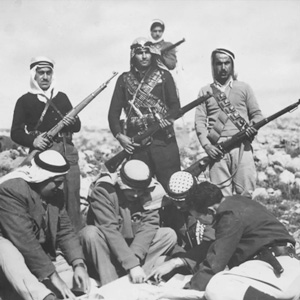
5. The Arabs Attack, the British Retreat, and the Jews Keep Building, 1918-1939
Wednesday, June 23, 2021 | 8:00 PM ET
In response to growing Jewish immigration, land purchases, and economic expansion, the Arabs of Palestine engaged in mounting violence in 1920-21, 1929, and 1936-1939. In each case, Great Britain responded by retreating from its promise to facilitate a Jewish national home. In the first two cases, Zionist counter-pressure, led by Chaim Weizmann, succeeded in getting Britain to return to its commitments, but in 1939 Britain, seeking to appease the Arabs on the eve of World War Two, issued a White Paper effectively reneging on the Balfour Declaration. The Yishuv, the Jewish community of Palestine, buttressed by waves of immigration driven by escalating anti-Semitism in Europe, used these two decades of British rule to establish the foundations of a Jewish state. This session describes the escalating Arab violence, the evolution of British appeasement, and the efforts of the Jews to reverse the British retreat and to build economic, social, and political institutions that could serve as the nucleus for their state.
6. The Securing of International Support for a Jewish State, 1939-1947
Wednesday, June 30, 2021 | 8:00 PM ET
World War Two, fought from 1939 to 1945, brought about a changed geopolitical reality in the world as a whole and in Palestine, which radically changed the interests of the British, the Zionist movement and the Yishuv, and the Arabs of Palestine. As a result of these factors, coupled with decisions made by the leadership of each of these three actors, the British decided to hand over the Palestine Mandate to the newly formed United Nations. Despite the forces working within the UN to prevent the establishment of a Jewish state, three sets of decision-makers—Stalin in the Soviet Union, the members of the United Nations Special Committee on Palestine, and President Harry Truman of the United States—came out in favor of partitioning Palestine and creating a Jewish state in just over half its territory, and they paved the way for the UN Partition Resolution of November 1947. This session analyzes the changes brought about by World War Two and the decisions made by the key actors within Palestine and outside of it that, collectively, made it possible for the UN to carry out a policy that revived the prospects for establishing a Jewish state only eight years after the British had seemed to dash those hopes permanently.
7. Israel’s War of Independence, 1947-1949
Wednesday, July 7, 2021 | 8:00 PM ET
Shortly after the General Assembly voted on November 29, 1947, to establish a Jewish and an Arab state in Palestine, Chaim Weizmann declared that states are not given to peoples on a silver platter—and that the Jews would have to fight to establish theirs. Indeed, the Yishuv, backed by the Zionist movement, fought a War of Independence that began the day after the UN decision when the Arabs of Palestine responded with anger and violence to that decision, and did not end until early 1949. This session focuses on the two phases of the conflict—the “civil war” pitting the Arabs of Palestine against the Yishuv from November 1947 to May 1948; and the war against the five Arab countries that invaded Palestine in May 1948 with the aim of preventing the birth of the Jewish state. In addition to examining the causes and consequences of Israel’s victory, it also covers the Declaration of the Establishment of the State of Israel, read aloud by David Ben-Gurion, the incomparable leader of the Yishuv, on May 14, 1948, hours before the British Mandate formally ended.
8. The Miraculous State Takes Shape, 1948 to 1953
Wednesday, July 14, 2021 | 8:00 PM ET
Even after its against-all-odds victory in the War of Independence, the State of Israel’s future was far from assured. It faced the challenge of absorbing massive waves of largely impoverished immigrants, establishing itself as the national state of the Jewish people, dealing with the difficulties caused by Palestinian Arab refugees who fled Israel during its War of Independence, and creating the institutions and traditions needed for effective democratic governance. This session describes how Israel—led by David Ben-Gurion—overcame these challenges in its initial half-decade and laid the foundations for a thriving society and state.
9. Making the Jewish State Secure, 1948 to 1967
Wednesday, July 21, 2021 | 8:00 PM ET
In parallel with its efforts to deal with a host of domestic challenges, Israel was compelled from 1948 through 1967 to act decisively to defend itself against its Arab neighbors and lay the basis for longer-term security. This session opens with the strategic changes that drove the Arab countries, led by Egypt’s Gamal Abdel Nasser, to escalate their conflict with the Jewish state between 1948 and 1956. We then examine the Sinai War of October 1956, in which Israel joined with France and Britain in defeating Egypt, and we examine its surprising diplomatic consequences. The final segment focuses on the causes and course of Israel’s spectacular victory in the Six-Day War of June 1967, in which it captured the Golan Heights from Syria, the Sinai Peninsula and Gaza Strip from Egypt, and Judea, Samaria, and Jerusalem from Jordan.
10. Transforming Israel and the Middle East, 1967-1970
Wednesday, July 28, 2021 | 8:00 PM ET
The Six-Day War brought about enormous changes not only for Israel, but for the Middle East as a whole. The bulk of this session will be devoted to examining the most important transformations that occurred in the years immediately following the war—within Israel, in the Jewish state’s relations with its Arab neighbors, and in its growing ties with the United States. We will also examine a little-known conflict, the War of Attrition of 1969-1970, whose strategic impact was enormous. Finally, we will consider how Israel’s decisive role in a clash between Syria and Jordan in September 1970 gave birth to the U.S.-Israel alliance.
11. Sadat, Begin, and the Israeli-Egyptian Peace Agreement, 1970-1982
Wednesday, August 4, 2021 | 8:00 PM ET
When Anwar Sadat succeeded Gamal Abdel Nasser as president of Egypt in 1970, few observers expected him to take bold initiatives. Yet in 1973 he launched the Yom Kippur War and in its initial days, together with Syria, dealt Israel substantial losses before the IDF recovered and won an extraordinary victory. Israel’s initial failures in that war undercut the long-dominant Labor Party and helped Likud’s Menachem Begin get elected prime minister in 1977, marking the first transition of power in the Jewish state. Months after Begin came to power, he hosted Sadat in Jerusalem for a dramatic visit that resulted a year later in the Camp David Accords, Israel’s first peace agreement with an Arab state. This session will cover these dramatic events and consider their implications for Israel in the subsequent four decades.
12. Seeking Peace Through Deterrence, Defense, and Diplomacy, 1979-2021
Wednesday, August 11, 2021 | 8:00 PM ET
Since the Egyptian-Israeli peace agreement of 1979, there have been two geostrategic earthquakes with long-term significance for the Middle East: the Iranian Revolution of 1979 and the collapse of the Soviet Union in 1991. Against the background of these developments, Israel has sought to attain security and peace through consistent efforts in four areas: acting decisively to prevent those countries committed to its destruction from developing the weapons of mass destruction needed to achieve this aim; seeking an accommodation with the Palestinian national movement on the basis of partitioning the area included in Mandatory Palestine; pursuing peace agreements with the four states on its borders; and working to bring about normalization and peaceful relations with all the countries in the Middle East that are open to such a prospect. In this session, we analyze the strategic reality in which Israel has functioned during the last four decades and its successes and failures in each of these four areas.

13. Israel’s Economy and Society Transformed, 1979 to 2021
Wednesday, August 18, 2021 | 8:00 PM ET
This lecture is the last one in our series, and in it we revisit one of the two central questions that were posed in the opening session: How did the Jewish people succeed in creating a country that defied the odds in developing an internal character marked by all of the following? a) Kibbutz Galuyot, the ingathering of the exiles on an unimaginable scale; b) a vital role as a national state acting to advance the interests of the Jewish people; c) a robust and stable democracy; and d) an economic powerhouse that is widely seen as the “Start-Up Nation.” Covering the period from 1979 to the present, we examine the key decisions and watershed moments that led Israel to be miraculously successful in each of these areas.
Registration
- We kindly suggest a donation of $100 to support Tikvah’s important educational programming on Jewish and Zionist ideas. The Tikvah Fund is a 501(c)(3) charity classified as a private operating foundation.
- If you make a donation of $250 or more, we will send you a complimentary signed copy of Jews and Power, by Ruth Wisse. Lord Acton famously proposed that “power tends to corrupt, and absolute power corrupts absolutely.” In Jews and Power, Ruth Wisse provides an analysis of Jewish history that suggests the exact opposite. For centuries, the Jewish people survived without a sovereign homeland, a political center, or a Jewish national defense force. How did this experience of exile shape the political outlook of the Jewish people? How has the founding and success of Israel reshaped the Jewish political imagination? And how should American Jews think about the meaning of Jewish power today?
- Registrants will be emailed a link to each livestream on the day of each session, with an additional reminder sent approximately one hour before the stream begins. For more information or to ask a question, please contact us at info@tikvahfund.org.
This form may not work if you are using older versions of Internet Explorer or Microsoft Edge as your web browser. If you are able, please switch to Google Chrome, Firefox, Safari, or Opera. If you continue to have difficulty, please contact us at info@tikvahfund.org.
If you would prefer to make a gift by check, please make it payable to “The Tikvah Fund” and mail it to: The Tikvah Fund, 165 East 56th Street, 4th Floor New York, NY 10022.
About Daniel Polisar
 Dr. Daniel Polisar is co-founder and executive vice president of Shalem College, Israel’s first liberal arts college. He previously served as president of the Shalem Center from 2002-2013 and also served as its director of research, academic director, and editor-in-chief of its journal, Azure. Dr. Polisar has testified before the Knesset Constitution Committee on Israel’s character as a Jewish state, and since 2005, he has served on the board of Metzilah, the Center of Zionist, Jewish, Liberal and Humanist Thought. In 2006, he was appointed by the prime minister to be the first chairman of the National Herzl Council, responsible for commemorating the legacy of Theodor Herzl, a position he held for three years. Dr. Polisar received his B.A. from Princeton University in Politics and his Ph.D. from Harvard in Government. His research interests include Zionist history and thought, the history and philosophy of higher education, and Israeli constitutional development.
Dr. Daniel Polisar is co-founder and executive vice president of Shalem College, Israel’s first liberal arts college. He previously served as president of the Shalem Center from 2002-2013 and also served as its director of research, academic director, and editor-in-chief of its journal, Azure. Dr. Polisar has testified before the Knesset Constitution Committee on Israel’s character as a Jewish state, and since 2005, he has served on the board of Metzilah, the Center of Zionist, Jewish, Liberal and Humanist Thought. In 2006, he was appointed by the prime minister to be the first chairman of the National Herzl Council, responsible for commemorating the legacy of Theodor Herzl, a position he held for three years. Dr. Polisar received his B.A. from Princeton University in Politics and his Ph.D. from Harvard in Government. His research interests include Zionist history and thought, the history and philosophy of higher education, and Israeli constitutional development.
